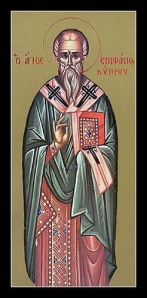I will continually be engaging that series of Who Is the Christian God? in the days and months ahead, but of course I also have other plates turning (in my reading); and one of those plates is a re-engagement (for me) of Richard Bauckham’s books The Theology of the Book of Revelation & The Climax of Prophecy (I have already, and pretty recently, read both of these works by Bauckham, and I wanted to revisit them in order to continue to meditate and reflect on my own position on such things—which is pretty much in alignment with Bauckham, if not wholesale). So of course, given the nature of my blogging pattern and style, I will also be reflecting upon the theological and exegetical issues that Bauckham’s writing is touching upon—as well as the more applied and correlative issues that Bauckham’s work only implicates, that is, the more popular issues of dispensationalism, amillennialism, premillennialism, & postmillennialism. That said, let me wade us into what Bauckham thinks constitutes the basic trajectory and original purpose for writing the book of Revelation (which will implicate all kinds of things). Here is what Bauckham writes on the original audience and purpose of the ‘Epistle of Revelation’, and then a bit on how Bauckham thinks this reality cashes out in application (theologically and pastorally):
[T]hus it would be a serious mistake to understand the images of Revelation as timeless symbols. Their character conforms to the contextuality of Revelation as timeless symbols. Their character conforms to the contextuality of Revelation as a letter to the seven churches of Asia. Their resonances in the specific social, political, cultural and religious world of their first readers need to be understood if their meaning is to be appropriated today. They do not create a purely self-contained aesthetic world with no reference outside itself, but intend to relate to the world in which the readers live in order to reform and to redirect the readers’ response to that world. However, if the images are not timeless symbols, but relate to the ‘real’ world, we need also to avoid the opposite mistake of taking them too literally as descriptive of the ‘real’ world and of predicted events in the ‘real’ world. They are not just a system of codes waiting to be translated into matter-of-fact references to people and events. Once we begin to appreciate their sources and their rich symbolic associations, we realized that they cannot be read either as literal descriptions or as encoded literal descriptions, but must be read for their theological meaning and their power to evoke response. [Richard Bauckham, The Theology of the Book of Revelation, 19-20.]
We leave off from Bauckham with a bit of a teaser; he goes on and provides some examples of what he describes in the quote paragraph of above. Suffice it to say, it can readily be observed that Bauckham, even in the small notation above (the quote), is getting at two popular, and I would say, erroneous, ways of reading the book of Revelation. Bauckham is getting at a naked idealism way of interpreting Revelation (as it has been in the history) which usually involves a presupposition of dualism; meaning that the book of Revelation is often construed as an ethereal book that depicts a cosmic struggle between good and evil. While there is an aspect where this is true for Bauckham, we can obviously see that he sees much more particularity, unity, and concreteness to the message and theology and history that make up this book than the classic idealism approach does. And then in the next breath, we also see Bauckham challenging what I will call the futurist, premillennial, dispensational reading of Revelation (the kind given popular expression in ‘The Left Behind’ series of books by Lahaye and Jenkins). He thinks it is in error to read Revelation as if its primary semantic and conceptual pool is predictive in nature; in other words, he sees it as highly problematic to read current events (like ours) into the book of Revelation, as if this was what John and the Holy Spirit had in mind when it was originally penned. Bauckham does not see the book of Revelation as a secret code book awaiting the decoder key (current events) to, in fact, decode it. No, he sees all of the events, people, and picturesque language of Revelations as grounded in a labyrinth of inter-related complexities that bubble up from the Old Testament apocalyptic genre (like that found in Daniel, Isaiah, Ezekiel, etc.); and then he sees this context being applied to the ‘current’ events of the Roman empire of which the seven churches addressed in the Revelation are located.
There is much more to Bauckham’s thesis about the book of Revelation, like; he sees the point of the book of Revelation as most pertinent to the Christians in the Roman empire who were suffering great tribulation and suffering, to the point of martyrdom. He sees the point of the book as primarily something to provide comfort and perspective for those being killed by the Roman persecution of the Christians. He sees the vindication of the Christian martyrs as the crux for understanding the composition of Revelation; and all of the apocalyptic language in the book, as providing God’s perspective over against the secular, mundane Roman perspective which these Christians were inhabiting. Bauckham sees the book of Revelation as predictive, in the sense that God’s people (all of us) will be vindicated at his coming (the second time, based on the first), as he crushes the powers of the nations, but not as the world would think, but as ‘the lamb slain before the foundations of the world’. So we see Bauckham’s vision of Revelation as correlative with the trajectory already set throughout the canon of the Old Testament apocalyptic literature; something like Daniel 2 comes to my mind:
44 “In the time of those kings, the God of heaven will set up a kingdom that will never be destroyed, nor will it be left to another people. It will crush all those kingdoms and bring them to an end, but it will itself endure forever. 45 This is the meaning of the vision of the rock cut out of a mountain, but not by human hands —a rock that broke the iron, the bronze, the clay, the silver and the gold to pieces.
“The great God has shown the king what will take place in the future. The dream is true and its interpretation is trustworthy.”
It is this kind of motif that Bauckham thinks shapes the book of Revelation, but not in light of its promise (like we leave it in the book of Daniel), but in light of its fulfillment, and thus reinterpretation ‘in Christ’. There is much more to say (and I will), but this should be enough for now.





